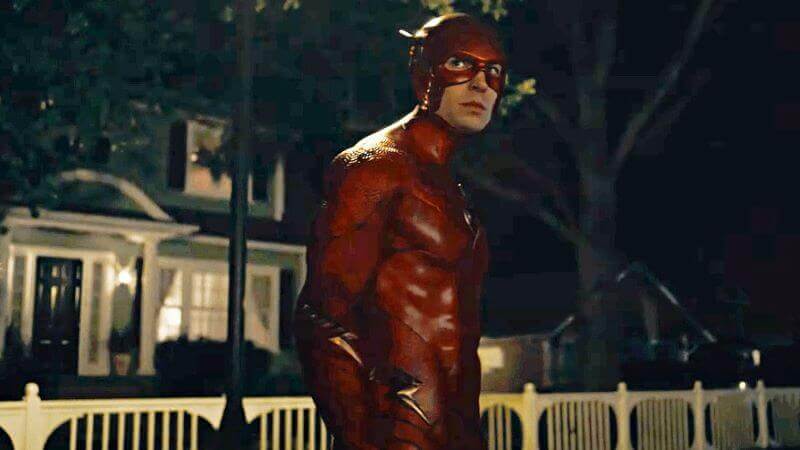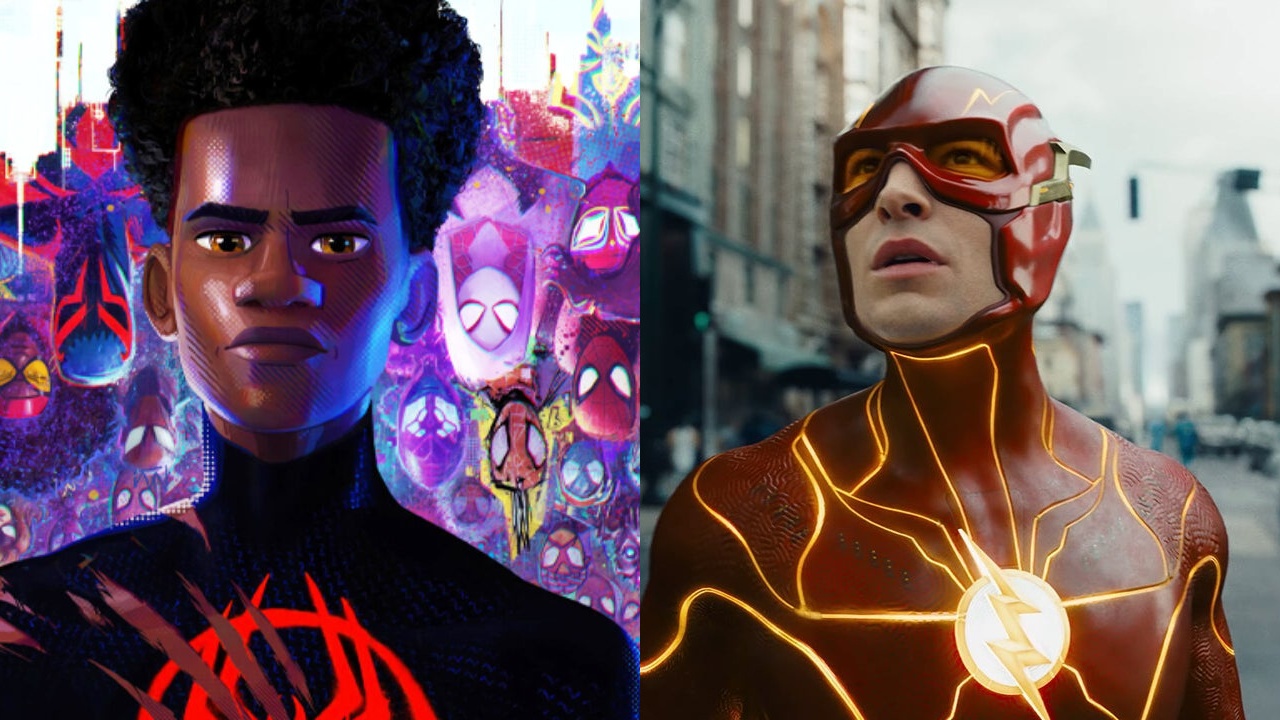The major superhero universes are in constant competition. It’s surprisingly rare that competing studios put out similar heroes. Across the Spider-Verse and The Flash would typically have nothing in common, but their narratives are shockingly similar. Both follow a young superhero with the chance to save a parent from an untimely death. Though this central element matches, Spider-Verse uses it to teach a lesson about individuality, while The Flash’s moral is that some people’s moms are just fated to die.
Across the Spider-Verse and The Flash Set Their Stakes High

Across the Spider-Verse introduces Miles Morales to the consolidated Spider-Society. Spider-Folks from varied alternate dimensions work together under the leadership of Miguel O’Hara. Miguel, better known as Spider-Man 2099, is a bitter hero who has lost everything. He unshakably believes that every Spider-Person must experience certain terrible events to understand and properly perform their duties.
These “canon events” are thought of as fixed points that will mold the prospective hero into the person they’re meant to be. Miles learns of canon events before his have all occurred. He discovers that he’s going to lose his father. He naturally tries to save him, but Miguel sends an army to stop him. Miles stands against all of Spider-Society and fights to save his loved one.
Almost every Spider-Man story of the past few years has embraced the same basic moral. Someone tells Spidey that he can’t save everyone. He respectfully disagrees and then puts himself through hell to do the impossible. Maybe people die, but Peter, Miles, and the other heroes who put on the suit always struggle to rescue every last soul. Spider-Man: No Way Home is about Peter Parker fighting the entire universe to fix deranged murderers he’s never met.
Across the Spider-Verse takes the concept to the extreme. Miguel tells Miles he can’t save everyone. Miles will do anything to prove him wrong, including giving up the Spider-Mantle. It’s a masterful escalation of the classic concept married to a commentary on Miles’ place in the canon. If The Flash stepped into the Spider-Verse, he’d take Miguel’s side.
The Moral of the Flash Is Almost Psychotic

Across the Spider-Verse and The Flash have only a few things in common. Like Miles Morales, Barry Allen is told that he can’t save everyone. His mom died when he was young, and the police charged his dad with her murder. He steps through time to fix it and messes everything up. The big difference is that Barry explaining he can’t save everyone is in the right this time.
The alternate Barry, created by the prime Flash’s decision to go back in time, destroys himself and everything else trying to figure out the perfect timeline. Somehow, Nora Allen’s presence causes Superman to die as an infant, Supergirl to be captured, Batman to retire after killing a guy, and Thomas Curry to never father a child. As a result, Zod attacks without Kal-El to stop him. The text is clear. If Nora lives, Earth dies. Sorry, Barry. You don’t get to have a mother.
The concept of a “fixed point” appears often in time travel stories. Doctor Who, for example, often features companions trying to stop some historical tragedy or save a million lives, only for the Doctor to explain that the event is a fixed point. This concept typically exists for two reasons. The writers need to nerf time travel to avoid it being all-powerful.
Alternatively, every time travel narrative eventually has to explain why its heroes don’t go back and right every historical wrong. It’s a simple answer. They don’t because they can’t. Events are fixed points when the writers need them to be. Barry Allen’s mom must die for the story to work, so it’s a fixed point now. That’s absurd and horrific. The implications are nightmarish.
Related:
The Flash: George Clooney Conjures Up Bad Batman & Robin Memories
Across the Spider-Verse and The Flash treat canon very differently. Miles sees it as a restriction that he can fight, while Barry is easily shackled to it. The Flash‘s moral agrees entirely with Miguel. Some people have been chosen by the timeline to die. There’s nothing anyone can do about it, and trying to change that will end the world. What’s the fundamental difference between that and a world governed by an angry god?
Miles Morales teaches us to do our own things, know who we are, and save everyone, no matter what anyone else tells us. Barry tells us to accept the death of our loved ones, even if we could fix it. Be happy the timeline didn’t take your dad, too, Barry. Turns out you actually can’t save everybody.





